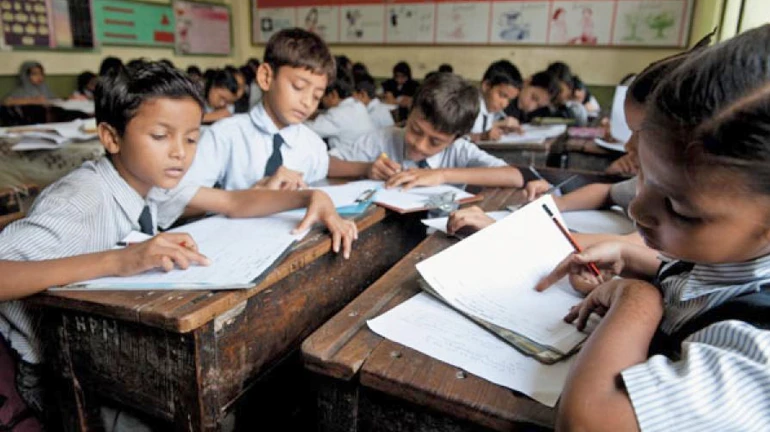
Many parents complain that their kids have developed the habit of being awake till late night or even midnight despite having early morning school. This ‘changed sleeping schedules’ of today’s children have affected their lifestyle and health as they do not get insufficient sleep.
In wake of this, Maharashtra Governor Ramesh Bais recently suggested that the state government should think about modifying the school timings so that students can get adequate sleep.
The Maharashtra government's plan to change school hours to guarantee that children receive adequate sleep has spurred a much-needed discussion about the value of relaxation and how it affects academic achievement.
In an exclusive conversation, the Mumbai Live team spoke to authorities at several schools in Mumbai and Maharashtra about their views, pros and cons on this suggestion by the state governor.
Considering the need to change timings as positive, CEO of The Academy School Dr. Maithili Tambe shared, “Sleep is often overlooked, with students and parents prioritising academic achievements over adequate rest. However, research has shown that lack of sleep can lead to a host of problems, including difficulty concentrating, decreased cognitive function, and even mental health issues. This initiative not only aims to enhance academic performance but also promotes overall well-being among students.”
On the other hand, Vice President, Academics, Orchids The International School, Kavita Chatterjee opposed the changing of school time as it will not solve the issue. She said that the idea seems to be quite simple but can bring many challenges. “Good sleep improves a student’s academic performance and overall well-being. But just changing the school time will not resolve this issue. Altering school timings may pose logistical challenges for families, affect after-school activities, and potentially clash with parents' work schedules. Students will exhaust themselves with longer commute time, than in meaningful exercises. Moreover, changing school hours might not guarantee improved sleep if students continue engaging in late-night activities,” she asserted.
Similarly, Green Acres Academy Chairman, Rohan Parikh, said: “There is scientific evidence that shows that the sleeping patterns of children change with age and I agree that school timings are earlier than ideal. However, it may not be possible to change school timings in the entire city due to several reasons.”
Encouraging adolescents to get the recommended amount of sleep is a discipline issue that requires direction and advice from parents and other adult role models. But, with adults having a big day and workload that keeps them up late, it is difficult for children to adopt this habit as they majorly look up to parents and follow what they do.
“The new age lifestyle is the handiwork of excess exposure to media and electronic gadgets. The quantum of screen time has increased considerably affecting the health of the children and a disturbed sleep pattern. Early to bed and early to rise makes a person healthy, wealthy, and wise stands true for all ages and eras. I am of the view that instead of changing the school timings we need to rewire our lifestyles to attune them to improving the health standards of the children with a balanced approach," exclaimed Anshu Saxena, Principal, Ryan International School, Dombivli.
Another suggestion the Governor Bais made was that schools should start no-book days and offer e-books to reduce the weight of school bags that children carry to school regularly. Children are not reading books the way they used to in the past. However, a large portion of their knowledge is consumed online, mostly via cell phones especially after the pandemic-induced lockdown. They ought to have access to a variety of entertaining and instructive e-books, audiobooks, and videobooks.
Promoting this, Chatterjee shared: “This transition is unavoidable as we progress into a more tech-enabled and developed society. Additionally, e-books offer interactive features that can engage students in a multimedia learning experience, potentially enhancing comprehension and retention. However, we should consider when and how we introduce these to our students. One drawback includes the potential for digital eye strain and other health concerns associated with extended screen time.”
Based on scientific data, practical considerations, and the potential effects on students' academic performance and well-being, administrators should think through and plan these transitions, taking into account all potential advantages and disadvantages.
Dr. Tambe said, “While the transition to e-books may require initial investment and adjustments in teaching methods, the long-term benefits of reducing the physical strain on children's bodies make it a worthy consideration.”
Meanwhile, resisting the use of e-books, Anshu Saxena, Principal, Ryan International School, Dombivali expressed that it can be considered for higher classes rather than from the formative years. Moreover, the use of e-books will entail an increase in screen time which again is detrimental to the health of the students. To lessen the burden of bags, the school can provide cubbies and lockers within the school premises.





